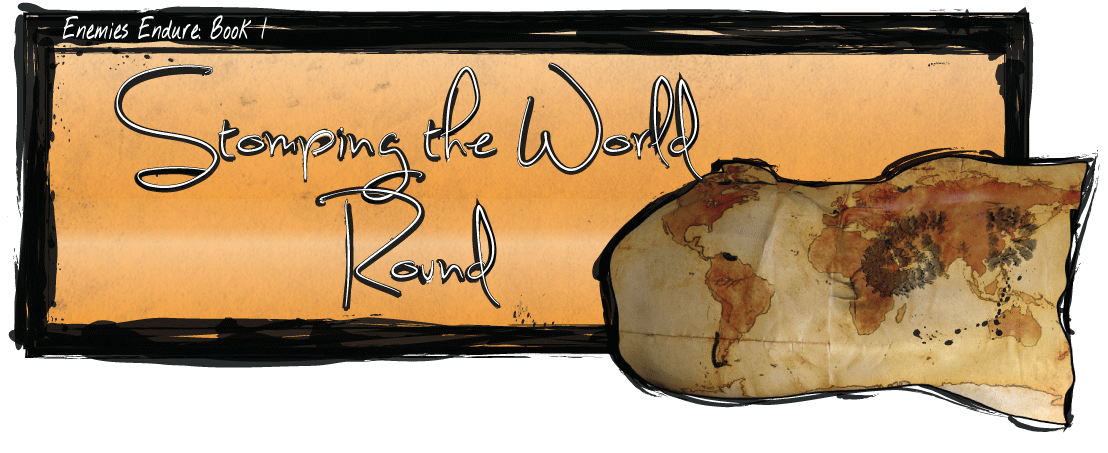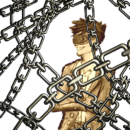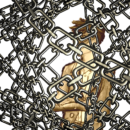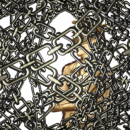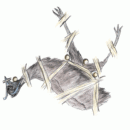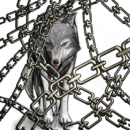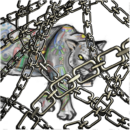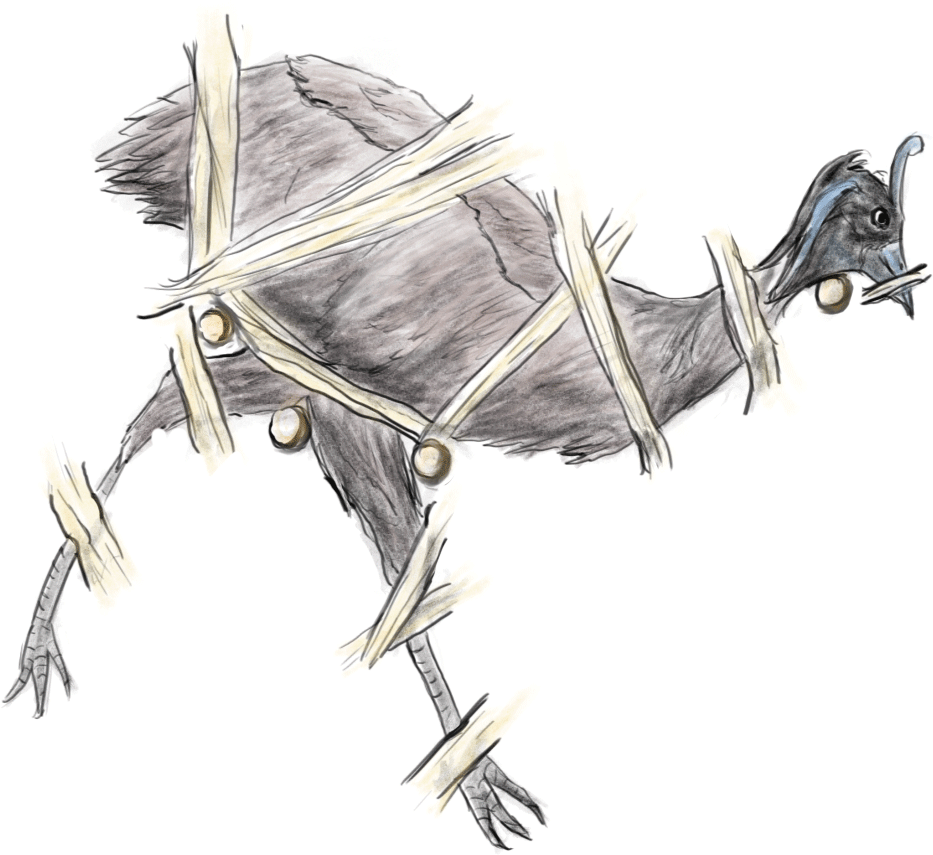. . .
“Fine,” says Hans, grimly. He goes. He farms delicious fruits, grimly. He makes some jam. The little wooden boy sneaks out and watches, even though Hans glares at him now and then as he cooks.
Hans jars the jam, grimly. He puts the jam in the pantry, grimly.
“There,” he says. “Are you happy now?”
The little wooden boy is just wooden. It doesn’t say anything. Boys who are made out of wood can’t actually talk.
Hans was probably imagining the whole encounter! That’s what a reasonable person would think.
. . .
After a while Hans says, “That wooden boy’s a trouble.”
He goes out to the wheel of Samsara. He takes a handful of reincarnation’s Kings. He grinds them down into a dread black jam and he rubs it in the eyes and ears of the wooden doll. The boy is trapped in a Cartesian prison.
He is sealed from perceiving the world.
. . .
“Now,” says Hans, “even if he does try to see something, he’ll only see the world of his own conceptions; and if he tries to hear something, he’ll hear the world of his own conceptions; and so forth, and so forth, and so on. And if he should set my pantry on fire, it will be his own conceptions that he is burning; and I doubt there can be contagion between a puppet’s mind and the world.”
. . .
“You’re really kind of old to be playing with puppets,” says Brygmir.
(She makes tape, for his emus.)
“Stop that!” shouts Hans, startling, and the little wooden boy goes skittering down the stairs to the pantry vault.
– 5 –
Mr. Gulley cannot love the wolf.
He tries but it is not in him. It is too much for him. Rather he does love it, he cannot help but love it, but he cannot stop the hatred for it that also grows.
It is in him, the wolf is in Edmund Gulley, it is wound through him and within him, and the chains of that slip and cut in the chambers of his spirit until he is ragged with it, until he cannot bear it, until his fear and guilt and shame at being the owner of the wolf, and the wolf-gold, are too much for him to bear.
He hits the wolf. It is pitiable. He beats it with his fists and he cannot do anything more with this than ruffle his great wolf’s fur.
He screams at it. He yells at it. He tells it that it is a bad wolf and it should not eat people —
And the specific time that he says that, he whispers, “Especially not father,” and he slumps crying against the great warm wall that is its fur.
The wolf looks away as if it shares his shame.
. . .
When he is seventeen Edmund Gulley runs away. He spends three months on an island before the knowing of the wolf calls him back. He comes back and his servants have left him and there is blood on the basement window and the wolf has eaten through his stores —
“I have to kill you,” he says.
“That is not an uncommon reaction,” says the wolf. “Though really, Edmund.”
“I know,” he says miserably, because the wolf is immortal, invincible, and has raised him from a foundation of twisted love. “But you’re evil.”
The wolf lolls its tongue. It grins.
“Then that’s the right thing to do, I guess.”
“You’re teasing me.”
“I only have one Edmund Gulley,” says the wolf. “Let me appreciate him.”
. . .
“You’re mean!” Edmund Gulley wails.
“I’m mean,” agrees the wolf. “I ate your gardener.”
“He didn’t deserve that!”
“He was right there,” says the wolf. “And I was hungry. And I am a wolf.”
. . .
“Wolves don’t eat people, you know,” says Edmund. “I saw that on the nature channel. That’s just propaganda. You have been programmed by pernicious ideas.”
“That’s ordinary wolves,” the wolf dismisses.
“That’s not!”
“That’s wolves that don’t drip acid,” says the wolf, “and don’t have awful fetters hurting them every second of fourteen hundred years, give or take a few at the beginning. And that don’t come out of rocks and get turned into gold.”
“You don’t know that,” says Edmund. “You’re just . . . you’ve just had a bad influence.”
“What?”
“That Hans guy,” says Edmund. “He was bad!”
. . .
“You probably just think you’re supposed to eat people,” Edmund explains furiously, “because of Hans, and then every time you eat someone, you get more invested in the idea, so that you don’t have to face the guilt for all the times before. You’re probably meant to be a super-angel-Heaven wolf and guard little children from awful magical threats.”
“Like what?”
“I don’t know,” Edmund says. The scissors haven’t fallen yet. He flails for ideas. “I guess . . . Nessie?”
“Nessie?”
“The Loch Ness monster?”
The wolf gets up. Wincing it adjusts its position. It lays itself back down. It licks at one of the fifty-pound sphere-weights that it occasionally rolls back and forth as toys.
“I will consider the possibility,” says the wolf, “because it entertains me. But I doubt very much that I will agree.”
. . .
“I couldn’t free you even if you turned good,” says Edmund, softly, “you know.”
He can see the bone of Fenris Wolf’s leg where the binding’s cut.
“I know,” agrees the wolf.
“I wouldn’t want to,” confesses Edmund, with so much shame that it could drown him, that it could fill him up like an overfull beaker and pour out to slime and slick all the wolf dander in the room.
“It’s all right,” says the wolf quietly. “You aren’t the one to free me.”
Edmund goes up the stairs.
“That,” explains the wolf, “will be your son.”
. . .
And the wolf thinks on Edmund’s words, and he on Fenris’; and in the end they come to their separate decisions, which are these:
The wolf thinks, I shall be good, if I am good, but if I am not, I shall not be bothered.
And Edmund sits on his roof and he stares up at the stars and he says, even knowing that the wolf’s ears are sharp he says it:
“It’s got to die.”
He cannot stop thinking of what happened to the gardener. He has a sudden flash of memory, and also of its absence; he remembers a sudden, wild night of passion on the island, but not whether he used contraception; he cannot remember the girl’s features, cannot remember her name; he thinks, if Vaenwode’s heir should quicken in that womb —
He cannot stop thinking of the gardener; of his own destiny; and of the awfulness of the furrows and the suppurating wounds of them where the fetter holds Fenris bound.
– 6 –
On December 18, 2004, magical jaguars in a decaying orbit around the world prevent the formation of a stable strangelet at the Relativistic Heavy Ion Collider.
“It’s not that I really want the world to keep going,” Yohl confesses. “It’s just —”
If the sorcerer-sages of the Mayans hadn’t shot them into space, the magical jaguars wouldn’t have to prevent the formation of stable strangelets. They could end the world themselves. They could fall on people. And then fall on other people. And more, and more, and more! And then they could crack the world open and they could play in its shattered corpse!
“I’m just attached to it,” Yohl concludes.
